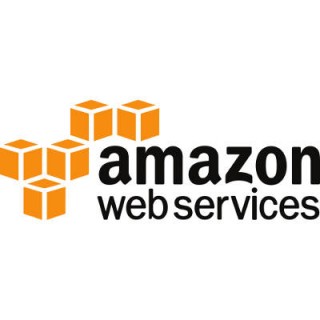Can you think of a more revolutionary technology in today’s modern age than cloud computing? Companies are now able to implement solutions that are both flexible and scalable enough to suit the needs of both small and large organizations. To this end, the same cloud won’t work for every type of organization. Here are four questions that you’ll need to ask in order to get the best service from your specific cloud provider.
Infradapt Blog
Cloud computing is an ever-growing industry, and it’s only going to grow more popular as time goes on. More businesses than ever have started to adopt the cloud in at least some capacity. Is your company one of the few that haven’t yet moved to the cloud? If so, you’ll want to at least consider it, as your business could gain considerable benefits from doing so.
Depending on the type of business you run, as well as its specific needs, the type of cloud you implement will vary in scope, size, and build. There are typically three different types of the cloud: public, private, and hybrid. Each of them comes with their own specific strengths and weaknesses.
Public Cloud
The public cloud is meant to help businesses with a limited budget gain access to crucial elements of the cloud, including storage, access to applications or services, and networking. Generally speaking, the public cloud is primarily used to provide entry-level cloud access to businesses of all kinds. Examples of the public cloud include services like Microsoft’s Office 365 suite, as well as Google’s G Suite, both of which provide productivity suites and storage to businesses through cloud distribution. What the public cloud offers in terms of efficiency and ease of setup can often make up for the lack of customization that many businesses find with it.
Private Cloud
Private clouds are generally more customized to suit the needs of your business, whereas public clouds are meant to be used more as a general solution. Private clouds are hosted on-site, managed by an in-house IT department, and require more attention. Compared to the public cloud, private clouds are generally implemented by businesses that know specifically what they need and how they want it set up.
Hybrid Cloud
The hybrid cloud is considered to be somewhere in the middle of the public and private, affording small businesses the benefits of both with little drawback, if any at all. Often times, hybrid clouds are implemented for the purposes of having a customized infrastructure without all of the responsibilities of managing one. A managed service provider like Infradapt can manage and maintain your cloud infrastructure on its own in-house network so that you don’t have to. To learn more, reach out to us at 800.394.2301.
Paper documents can hold businesses back for several different reasons. For example, have you ever tried to move to a new office and drag along countless heavy filing cabinets? What about digging through folders just to find one specific document? It’s difficult to sort them in the first place as it is. Technology has made this job much easier, providing businesses with tools to better manage and maintain their wealth of paper documents in the form of a digital cloud environment.
A cloud-based document storage infrastructure is a great way to help your business overcome the annoyances and drawbacks of keeping paper files and storage in your office. Here are some of the best reasons why your organization should consider cloud-based document management systems.
Easy Organization and Access
We’re sure you’ve felt the frustration of storing paper files into folders, and then further storing them in large filing cabinets. A document management system makes this much easier to handle as you are storing files on your in-house network in an organized and efficient manner. It’s just like using folders on an ordinary computer or network infrastructure, and as long as you stay organized, you shouldn't have any issues finding the data you’re looking for. Plus, you’ll be able to access any files stored in your cloud from pretty much any connected device, which creates a more flexible work environment.
Easier to Navigate
Just like your browser’s search bar or your basic search engine like Google, you can search your document management system for specific files. You certainly can’t do something like that with your filing cabinet! This alone is a great way to ensure that your documents are efficient to locate at all times. With a document management system based in the cloud, all you need to do is just type your searches into the system and you can find whatever information you’re looking for easily enough.
Easier to Preserve
How would your filing cabinets hold up to a fire in the office? What about a flood or similar natural disaster? Chances are that “not well” is the answer. As with any asset, you should be able to have a backup in the event of a worst-case scenario, but this is difficult for physical document storage. Digital cloud-based document storage should always be backed up with external solutions, like a backup and disaster recovery solution so that these worst-case scenarios don’t prematurely end your business.
The Primary Risk: Data Security
The issue with storing any data in a connected and online environment is that you’re exposing it to potential hackers and other security risks. There are threats out there that are always on the lookout for ways into any type of infrastructure, and threats are growing stronger each and every day. Therefore, you should have solutions implemented that optimize security against threats, as well as data backup and disaster recovery to ensure a random incident doesn’t keep your business from succeeding.
To get started with a cloud-based document management system, reach out to us at 800.394.2301.
Keeping your company’s data safe is extremely important no matter where it is stored. Making the decision to store data in the cloud or in an in-house server is just one consideration you need to make. Today, we will compare these two options to help you select the one is right for your business.
Amazon Web Services, or AWS, has long been a provider of quality web-based applications and services for businesses of all shapes and sizes. Nowadays, AWS is providing more services than ever before for the business world with more offerings regarding video creation, augmented reality, and virtual reality. With these new cloud-based services, Amazon is hoping to take advantage of a new market for emerging technologies.




